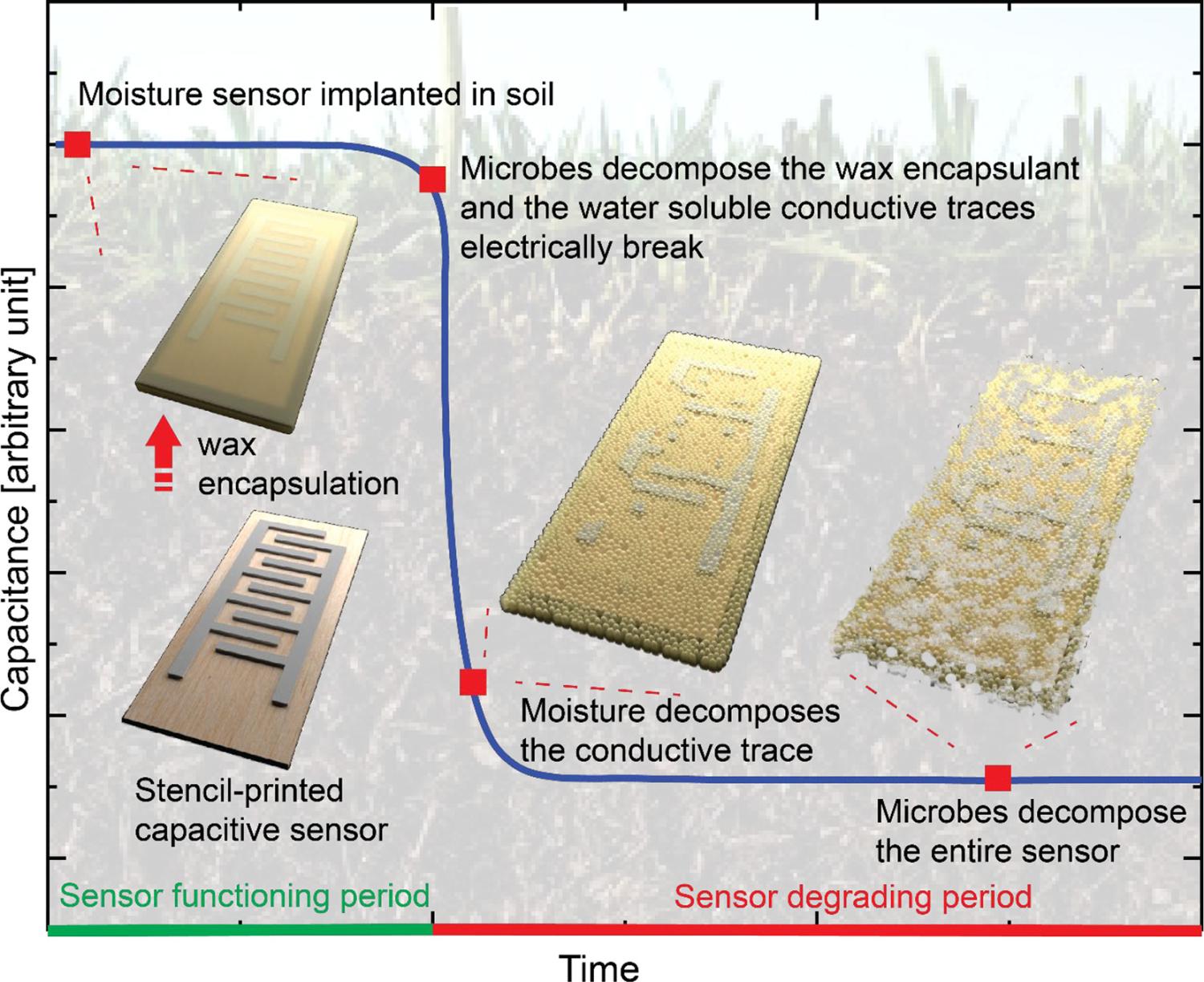Paper published in ACS Sustainable Chemistry and Engineering

Yongkun, Madhur, and Anupam's work on biodegradable soil moisture sensors was published in ACS Sustainable Chemistry and Engineering! This research was carried out in collaboration with Raj Khosla's group, previously of Colorado State University, and now at the University of Kansas.
Title: Controlled Biodegradation of an Additively Fabricated Capacitive Soil Moisture Sensor
Abstract: Successful precision agriculture decision making requires characterizing soil heterogeneity at high spatiotemporal resolution in real-time in order to optimize input (such as water and nutrient) amounts and location. In order to achieve this goal, a printed soil moisture sensor fabricated from biodegradable materials is demonstrated. These devices are intended to function during the growing season and then harmlessly degrade afterward, enabling high-density deployment, eliminating the need for sensor retrieval, and enabling the use of simple device structures and low-cost materials and fabrication techniques. A capacitive structure is used with a water-soluble zinc electrode printed onto a biodegradable substrate. Rapidly degrading substrate and electrode are encapsulated in a slowly degrading wax blend that protects the device, reduces drift, and controls degradation time. A linear capacitance response is observed for soil samples with a volumetric water content from 0 to 72%. Accelerated degradation testing demonstrates that the sensor responds predictably and stably until the encapsulation is breached, at which point the sensor fails rapidly, providing a clear distinction between the functional and nonfunctional lifetimes of the sensor. These results demonstrate the potential of biodegradable sensors to allow maintenance-free, affordable, and real-time soil moisture measurement at high spatial density for precision irrigation control.

